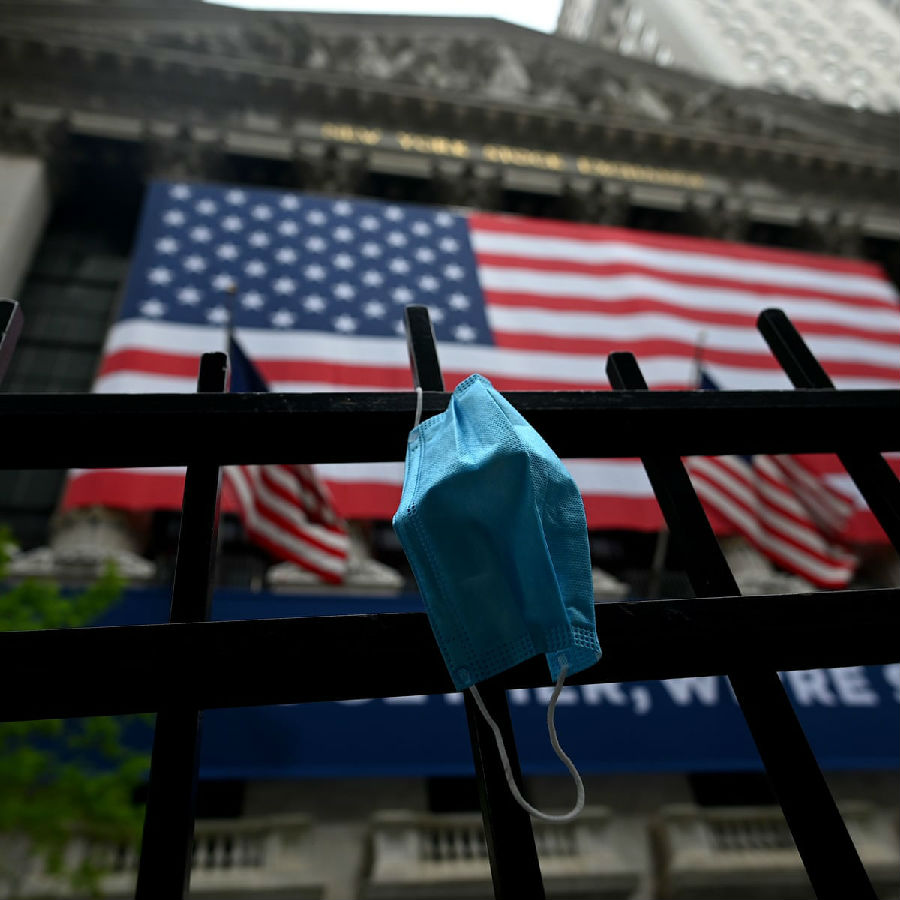America's unequal economic recovery
美國經濟復蘇的不平等問題
By Alana Abramson and Abby Vesoulis
文/阿蘭娜·艾布拉姆森,艾比·維蘇里斯
It was the eve of their oct.2 wedding when Brittany Riley and Peter Golembiewski read the news.
10月2日婚禮在即,布列塔尼·萊利和彼得·戈倫比夫斯基卻看到了這樣一則新聞。
The Payroll Support Program that Congress passed in March to keep airline workers like them employed during the pandemic had expired.
國會3月份通過的,旨在幫助他們這樣的航空公司員工在大流行期間保持就業狀態的薪資支持計劃到期了。
Golembiewski was furloughed, losing his salary and health care.
戈倫比夫斯基被停職了,工資和醫保也沒了。
Riley voluntarily accepted a furlough, forgoing a paycheck to keep her health care.
萊利主動接受了停職安排,放棄了維持自己醫保的工資單。
As they started to figure out how they could afford rent on their Denver home and food for their three kids,
就在他們開始盤算如何支付丹佛的房租和三個孩子的食物時,
the couple's anxiety gave way to anger—at Congress, for failing to deliver more economic relief,
這對夫婦逐漸由焦慮變得憤怒了——對國會的憤怒,因為國會未能提供更多的經濟救濟,
and at officials like President Donald Trump, for bragging about the nation's comeback while their industry goes up in flames.
以及對特朗普總統這樣的官員的憤怒,因為他們總是吹噓著美國經濟的復蘇,而他們的行業卻已陷入火海。
"We kept everyone connected and everyone safe, and we tried to do our part as frontline employees," says Riley.
“我們讓大家保持了聯系,確保了每個人的安全,我們努力做好一線員工的本職工作,”萊利說道。
"Now we're just forgotten."
“現在卻被過河拆橋了。”
The newlyweds' predicament embodies what economists have decried as a fundamental failure of Washington's economic recovery strategy:
這對新婚夫婦的困境其實體現了一個被經濟學家譴責為華盛頓經濟復蘇戰略的根本性失敗的問題:
it has disproportionately helped the rich, amplifying the nation's existing wealth gap.
這一戰略造福的主要是富人階級,進一步拉大了貧富差距。

While workers like Riley and Golembiewski have lost their jobs,
盡管萊利和戈倫比夫斯基這樣的員工失去了工作,
the stock market continued to perform well, benefiting those who had enough assets before the pandemic to invest.
股市的表現卻依然良好,大流行之前有盈余資產投資的人群又賺了一筆。
While American billionaires saw their wealth skyrocket by $282 billion from mid-March to mid-April,
從3月中旬到4月中旬,美國富豪階級的財富飆升了2820億美元,
according to the Institute for Policy Studies, a progressive think tank, more than 22 million Americans lost their jobs during the same time.
進步智庫政策研究所的數據顯示,然而,同一時期,還有逾2200萬美國人失去了工作。
Nearly six months later, the picture remains dismal.
近六個月過去了,形勢依然慘淡。
Though the unemployment rate decreased by half a percent from August to September,
盡管八月到九月失業率下降了0.5%,
there are still 11 million fewer jobs than there were in February, as of the September jobs report.
截至9月就業報告出爐,就業崗位仍比2月份少了1100萬個。
That's a bigger drop than at the bottom of the Great Recession, and the losses largely fall along racial and gender lines.
這一降幅已經超過了大衰退最嚴重的時期,而且,這一損失跟種族和性別因素一致。
Whereas 7% of white Americans reported being jobless in September,
9月份的就業報告中,美國白人的失業率為7%,
10% of Hispanic Americans and 12% of Black Americans found themselves unemployed.
西班牙裔的失業率為10%,而黑人的失業率達到了12%。
譯文由可可原創,僅供學習交流使用,未經許可請勿轉載。











